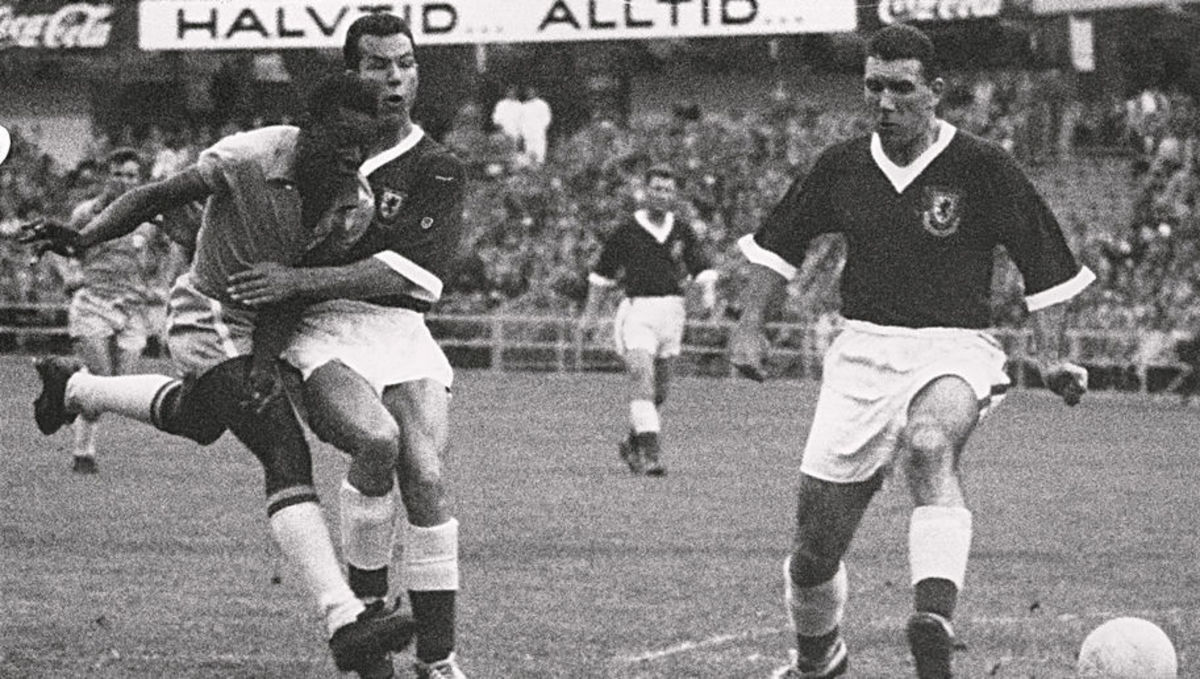World Cup Countdown: 14 Weeks to Go - How the World Was Robbed of Pele at His Greatest

To many a football fan of his of her generation, Edson Arantes do Nascimento will always be regarded as perhaps the greatest living footballer not currently active in the game today.
While Diego Maradona won many a vote from the writing and professional side, Pele was still thought of as from a fan perspective as the greatest footballer that ever lived - certainly pre Lionel Messi era.
The Brazilian, who played for his his native Santos for almost two decades scoring an incredible 619 goals in almost as many games (638) won an unprecedented three World Cup competitions with Canarinho; in Sweden in 1958, four years later in Chile and 12 years after his first winners' medal at Mexico 1970.
Pele's win in his indigenous South America in 1962 however, was overshadowed by his own injury in the early stages of the tournament.
With the 22-year-old at the peak of his powers and rated as the best player in world football football at the time, and with a Jules Rimet trophy under his youthful belt already, Pele scored and assisted against Mexico in their opening game of the tournament before suffering injury himself against Czechoslovakia the following game.
Attempting a long range effort, the forward was forced off the field but more pertinently ruled out of the rest of the tournament.
Pele's loss was Garrincha's gain as Brazil nevertheless went on to become World champions for the second successive occasion. But how much did not only the men in gold, but the world, miss out on his talents in Chile that summer?
Domestically, Pele has just led Santos to their most successful league campaign earlier that year in the Western Hemisphere equivalent of the UEFA Champions League: the Copa Libertadores.
Beating defending Uruguayan champions Penarol in the final, Alvinegro Praiano became the first Brazilian club side to win the competition with Pele scoring a brace to secure the title.
Pre-World Cup, such was Santos' dominance of the game, the Brazilians had gone on to win the Intercontinental Cup - now the FIFA Club World Cup - against European Cup winners Benfica. There was clearly something special about the Brazilian side, more particularly Pele himself as not even at 22-years-of-age the striker netted a hat trick against the Portuguese.
One merely needed to witness his performance against the Mexicans to see that this incarnation of Pele was not the teenage prodigy who had stunned a worldwide audience four your prior; this was no longer a raw talent, but a man having matured both on and off the field and now capable of the remarkable on it.
A skinny 5’8″ teenager whose nifty skills had conquered Sweden in 1958, had now evolved into a more dynamic athlete and who become the lynchpin of Brazil’s starting lineup now in the early sixties.
His goal in that game - involving the Brazilian taking on and beating four defenders - was a taster of what Pele was set to bring the table in that summer, but was then cruelly denied him.
His odyssey on the global stage was bookmarked with a third World Cup in 1970, but as England lifted the trophy in 66' Pele was at his transitional stage of his career which further points to Chile being in his career heyday.
That fact may not be of such significance to the national side as a whole having gone on to World Cup glory in his absence - ironically versus the Czechs in a 3-1 final victory in Santiago - but such was Pele's appeal and ability he was the embodiment of footballing immortality.
That is worth remembering in the 21st century of so many many fallen idols of the sport. Pele encompassed the beautiful game but far outside the boundaries of his his native shores.
In truth, we may never truly know what show Pele may have put on in the World Cup of 1962 - it was simply impossible to replicate his place of the field of play - but on the back of one of the more sensational years of a playing career in the game at any time, it may be that the world was denied seeing perhaps the greatest exponent of the global game, at his very best.
Perhaps the true definition of sporting tragedy.







